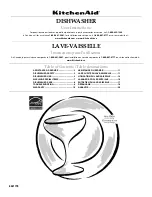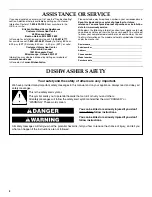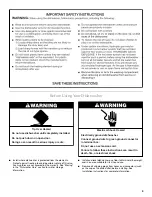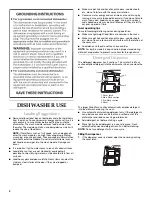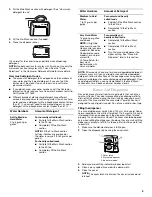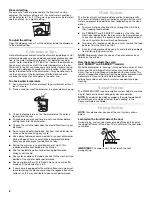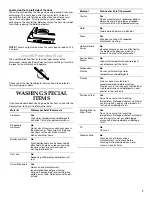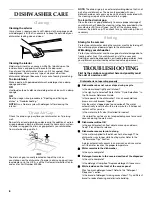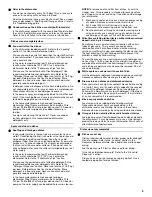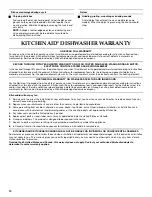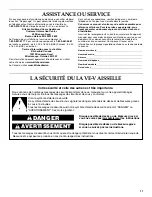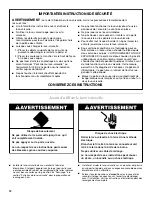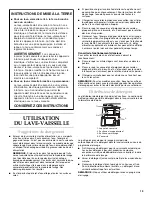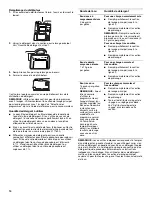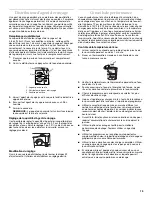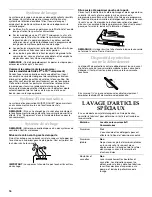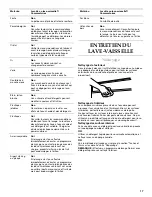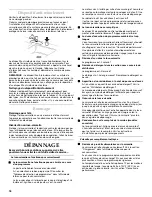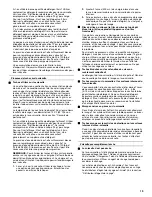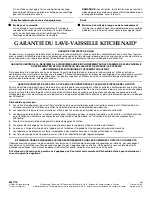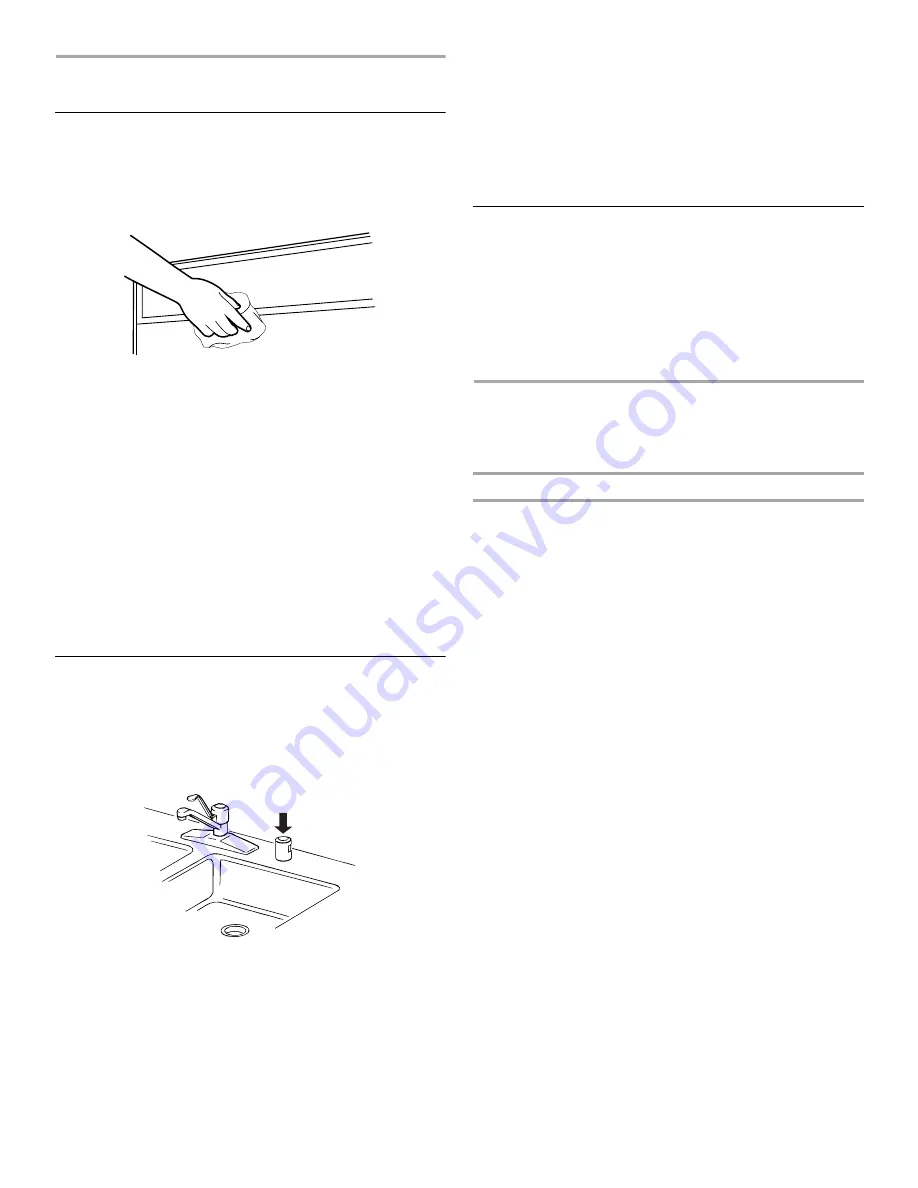
8
DISHWASHER CARE
Cleaning
Cleaning the exterior
In most cases, regular use of a soft, damp cloth or sponge and a
mild detergent is all that is necessary to keep the outside of your
dishwasher looking nice and clean.
Cleaning the interior
Hard water minerals can cause a white film to build up on the
inside surfaces, especially just beneath the door area.
Do not clean the dishwasher interior until it has cooled. Wear
rubber gloves. Do not use any type of cleanser other than
dishwasher detergent because it may cause foaming or sudsing.
To clean interior
Make a paste with powdered dishwasher detergent on a damp
sponge and clean.
OR
Use liquid automatic dishwasher detergent and clean with a damp
sponge.
OR
See the vinegar rinse procedure in “Spotting and filming on
dishes” in “Troubleshooting.”
NOTE: Run a Normal cycle with detergent after cleaning the
interior.
Drain Air Gap
Check the drain air gap anytime your dishwasher isn’t draining
well.
Some state or local plumbing codes require the addition of a drain
air gap between a built-in dishwasher and the home drain system.
If a drain is clogged, the drain air gap protects your dishwasher
from water backing up into it.
The drain air gap is usually located on top of the sink or
countertop near the dishwasher. To order a drain air gap call your
local dealer, or in the U.S.A., call the Customer Interaction Center
and ask for Part Number 300096.
NOTE: The drain air gap is an external plumbing device that is not
part of your dishwasher. The warranty provided with your
dishwasher does not cover service costs directly associated with
the cleaning or repair of the external drain air gap.
To clean the drain air gap
Clean the drain air gap periodically to ensure proper drainage of
your dishwasher. Follow the cleaning instructions provided by the
manufacturer. With most types, you lift off the chrome cover.
Unscrew the plastic cap. Then check for any soil buildup. Clean if
necessary.
Storing
Storing for the summer
Protect your dishwasher during the summer months by turning off
the water supply and power supply to the dishwasher.
Winterizing your dishwasher
Protect your dishwasher and home against water damage due to
freezing water lines. If your dishwasher is left in a seasonal
dwelling or could be exposed to near freezing temperatures, have
your dishwasher winterized by authorized service personnel.
TROUBLESHOOTING
First try the solutions suggested here and possibly avoid
the cost of a service call...
Dishwasher is not operating properly
■
Dishwasher does not run or stops during a cycle
Is the door closed tightly and latched?
Is the right cycle selected? Refer to the “Cycle Selections” in
the Consumer Reference Guide.
Is there power to the dishwasher? Has a household fuse
blown or circuit breaker tripped?
Has the motor stopped due to an overload? The motor
automatically resets itself within a few minutes. If it does not
restart, call for service.
Is the water shutoff valve (if installed) turned on?
It is normal for certain cycles to repeatedly pause for several
seconds during the main wash.
■
Dishwasher will not fill
Is the overfill protection float able to move up and down
freely? Press down to release.
■
Dishwasher seems to run too long
Is the water supplied to the dishwasher hot enough? The
dishwasher runs longer while heating water. Refer to the
“Performance Tips” section.
A delay automatically occurs in some wash and rinse cycles
until the water reaches the proper temperature.
■
Water remains in the dishwasher
Is the cycle complete?
■
Detergent remains in the covered section of the dispenser
Is the cycle complete?
Is the detergent lump-free? Replace detergent if necessary.
■
White residue on the front of the access panel
Was too much detergent used? Refer to the “Detergent
Dispenser” section.
Is the brand of detergent making excess foam? Try a different
brand to reduce foaming and eliminate buildup.

